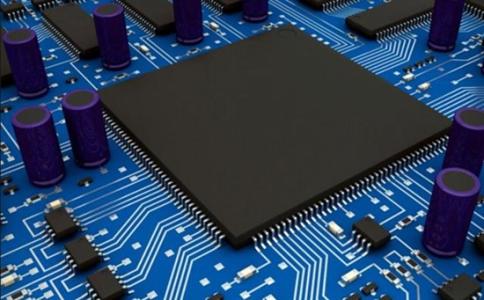China's chip competition is fierce _ 10 million self-driving cars are deployed in 10 years
China hopes to deploy 30 million self-driving cars within a decade, which has spawned an emerging chip industry in China, and emerged as a company that is committed to building a “brain†for these cars, such as Horizon RoboTIcs.
At the moment, the era of autonomous driving is a general trend, but at the same time international trade disputes have brought uncertainty. Beijing-based Horizons hopes to target international competitors such as NVIDIA and Mobileye to supply chips for China's self-driving cars. According to research firm Gartner, by 2021, the annual revenue of the global autonomous automotive chip industry will more than double to $5 billion.
China hopes to reduce its focus on smartphones and TVs, focusing on the development of precision semiconductors and artificial intelligence technologies to move upstream of the global manufacturing value chain. At present, China imports 1.75 trillion yuan of chips every year, even higher than the oil imports.
"China must spare no effort to acquire and develop its own chip technology to enhance its sense of security, especially when the US government has made us worry about any trade protectionism against China." Wei Shaojun, director of the Institute of Microelectronics at Tsinghua University, Said at the forum event in Shanghai.

Efforts to achieve self-sufficiency in the chip field are a priority for the new Chinese government. According to Bloomberg News, the Chinese government has set up a fund of 2,000 yuan to invest in local chip makers.
As the world's largest automotive and electric vehicle market, Chinese regulators hope that their self-driving cars will be able to adopt self-developed chips. The government expects that by 2020, China's vehicle and chip, sensor and other parts and components will exceed 100 billion yuan.
“(For the autopilot industry), everyone is on the same starting line, so this creates opportunities for China,†said Ding Wenwu, president of the China National Integrated Circuit Industry Investment Fund.
Horizon Robotics was founded by Yu Kai, former head of Baidu's artificial intelligence business. The company's investors include Intel Capital, Shanghai Harvest Fund Management Co., Ltd., Russian billionaire Yuri Milner, and China Jianyin Investment Co., Ltd.
In December last year, Horizon Robot completed a round of financing of 100 million US dollars.
Horizon's "Journey" 1.0 board size is smaller than a stamp. At the Consumer Electronics Show in Las Vegas in January, the processor was shown in GM's Yukon XL. It is reported that the processor can detect up to 200 targets (including pedestrians, vehicles and lane markers) in real time, helping unmanned vehicles avoid collisions.
“Chinese companies have grown from manufacturing in China to creating in China,†said Yu Kai, 42, who is now “invented-in-China.â€
Right now, Horizon is working with Volkswagen's Audi, Chongqing Changan Automobile, and auto parts manufacturer Bosch to break into future models. In 2016, a Changan self-driving car successfully completed a 1,200-mile drive test.
In the automotive industry, in order to reduce fuel consumption, the number of LED lights in automotive brake lights is subject to rigorous scrutiny. How to deal with data from laser, radar and camera sensors without consuming a lot of power is a great challenge for chip manufacturers.
Yu Kai said: "It's like we are looking for a horse. It can run fast and long, but it eats very little. If the embedded car chip consumes too much power, it will cause the car to run out quickly. It is difficult to run far."
Audi's Beijing-based spokesperson Johanna Barth said that Audi has selected Horizon as a partner for the Chinese project, and the company will evaluate the results before taking the next step.
She said that in the cars sold outside China, Audi still uses the chips of NVIDIA and Mobileye.
Intense competitionHeadquartered in Santa Clara, Calif., NVIDIA has benefited from increased demand in the autonomous driving industry, and its revenue has grown by more than 20% in seven quarters. It also partnered with Baidu to develop an autonomous vehicle platform and plans to install the system in Chery.
“We are working with Chinese automakers, ecosystems, and global automakers selling cars in China,†said Danny Shapiro, senior director of NVIDIA's automotive chip business.
These companies include Tucson, a self-driving truck startup in Beijing. Tucson plans to start commercial truck fleets in Shanghai and Arizona, next year, and its investors include NVIDIA.
"We are very satisfied with NVIDIA's chips, and its computing power is the strongest for autonomous driving solutions," said Tucson's chief technology officer.
In the field of autonomous car chips, Mobileye is another important competitor of Chinese companies. The company is headquartered in Israel and was acquired by Intel for $15 billion last year. An Intel spokesperson said that Mobileye hopes to expand its business in China through its fourth-generation EyeQ chip and Road Experience Management map system.
Mobileye will bring its map system to China by working with Beijing digital map provider NavInfo.
Despite the challenges, China has sufficient funds and determination to become a new force in the field of semiconductor development, just as China is now doing in the field of electric vehicles.
On March 5, Chinese government leaders said at the National People's Congress that China's industrial priorities include becoming a leader in advanced manufacturing, including integrated circuits, 5G mobile communications, aircraft engines and new energy vehicles.
The Chinese government expects to invest about $150 billion in these areas over the next 10 years.
Wei Shaojun from Tsinghua University said: "The major governments around the world deploy resources in policies, talents and capital to upgrade their industries. China is no exception."
walkie talkie antenna,Interphone antenna,TWO Way Antenna.walkie talkie mini antenna,long range walkie talkie antenna
Yetnorson Antenna Co., Ltd. , https://www.yetnorson.com